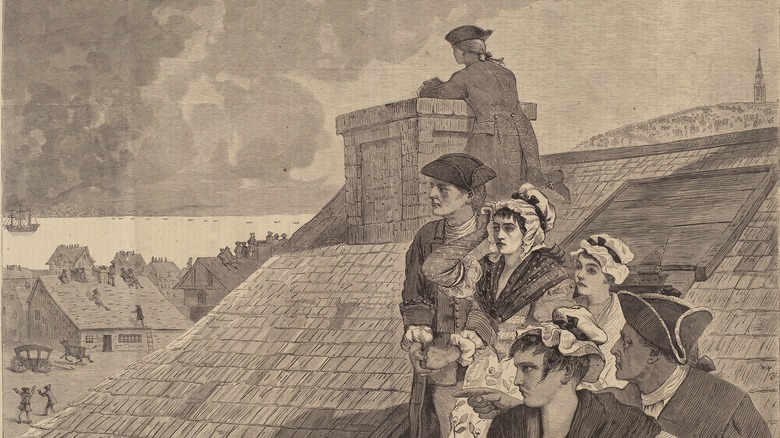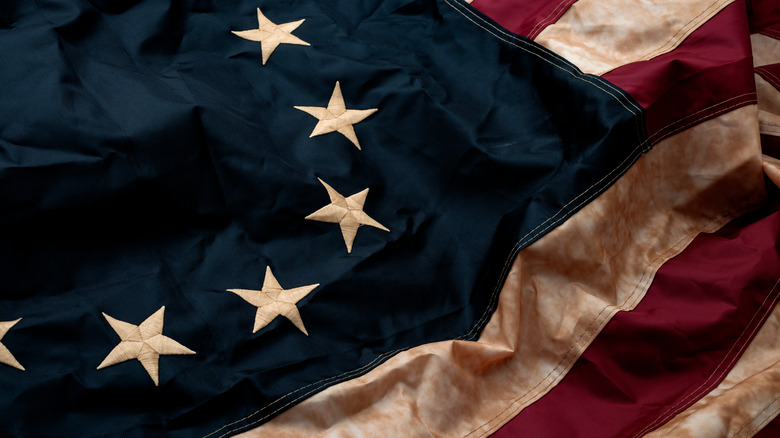Why The Battle Of Bunker Hill Name Is Misleading
French fries aren't from France, red pandas are actually closer to raccoons, and cat burglars really aren't interested in stealing your felines. Yep, names can be misleading — especially if so much time has gone by since their names were coined that we all just kind of collectively agree to overlook the error.
Such is the case with The Battle of Bunker Hill, a misnomer given that this extremely bloody chapter of the America's revolution happened on another hill entirely. And, look, you can't blame this one on historians but you can point to both the fog of war, as well as what was either a bit of military disobedience or plain, old bad navigation skills.
According to Mental Floss, on the evening of June 16, Colonel William Prescott was ordered to build a fort on Bunker Hill in an effort to the British Redcoats' seizure of Massachusetts' key Charlestown Peninsula. Things didn't go exactly as planned.
The Battle of (Not) Bunker Hill
Prescott, either full of unearned confidence or brimming with clever warfare strategy ideas (take your pick), led his 1,000 men to begin fortifying the hillside in advance of the Brits' arrival. And indeed, they worked through the night, reports Mental Floss, and successfully dug in their trenches ... on a place called Breed's Hill.
That's right, one of the most famous battles of our young nation's history was a bit misdirected. According to the blog Battlefields, however, the British were nevertheless rattled, especially given how much the Colonists had accomplished to fortify themselves in just one night.
Ultimately, as the history books tell us, the Redcoats won the battle but lost the war. Though the battle was a tactical victory for the empire, it nevertheless deeply hurt the British, who suffered more than twice the number of casualties than did their foes. And even though the ragtag group of Colonial defenders fought fiercely, it still needed to be assembled into a true army. It was a task that soon fell to a young George Washington, proving that despite its geographically challenged name, the Battle of Bunker Hill heralded a new direction for a young country.

